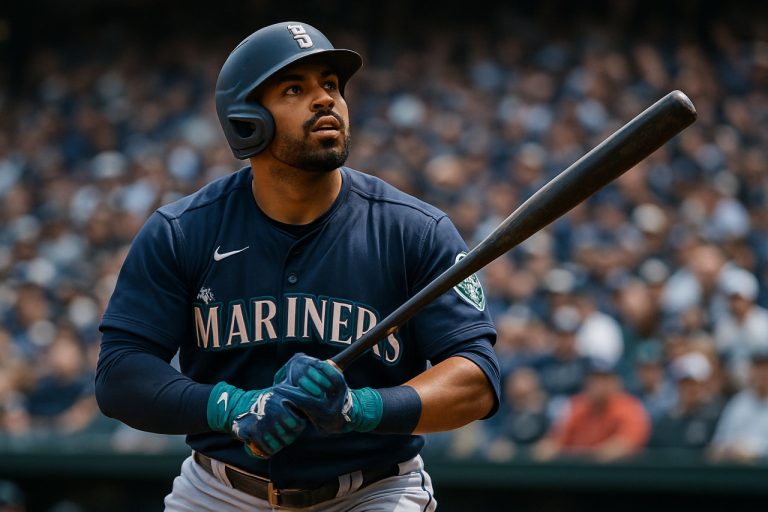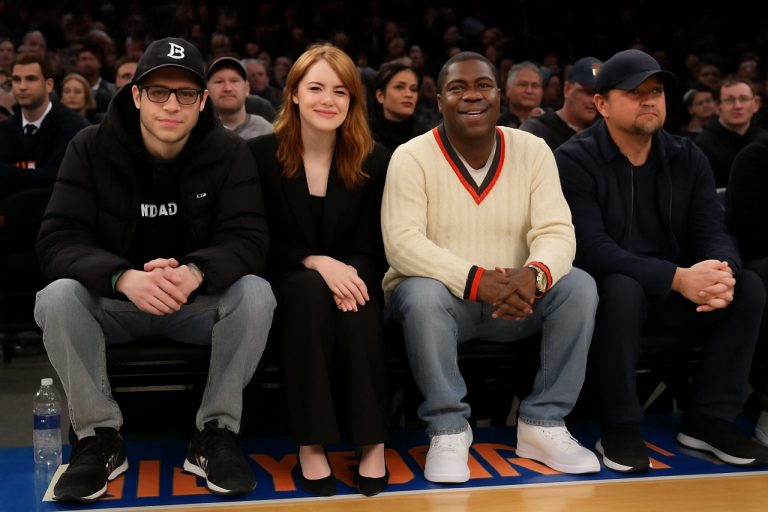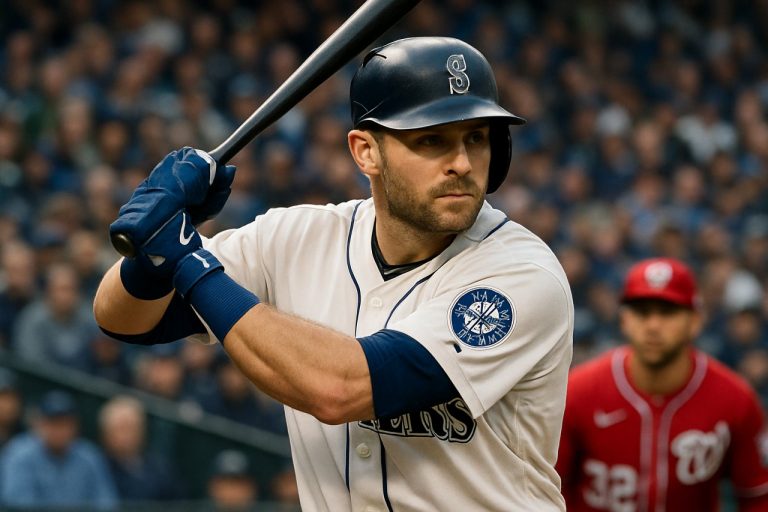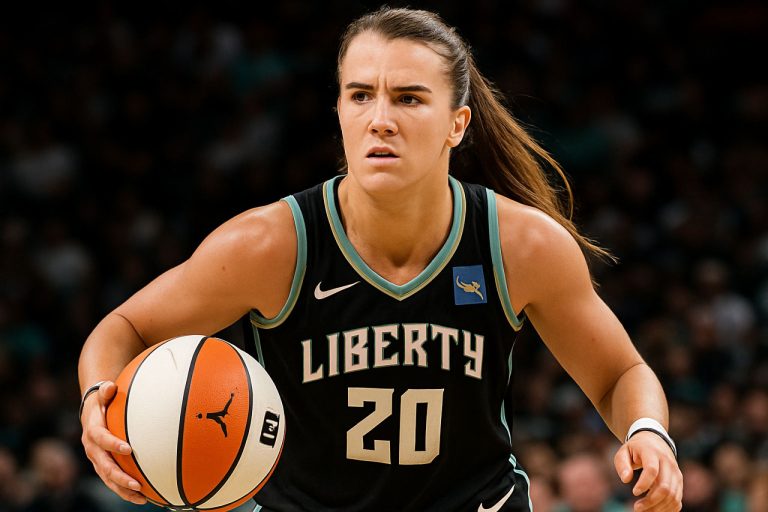
- Kirk Cousins, the Falcons’ high-profile veteran quarterback, skipped voluntary OTAs, signaling possible tension over his starting role and future amid major franchise changes.
- Rookie Michael Penix Jr., drafted eighth overall, has quickly become a central figure in Atlanta’s quarterback competition, bringing new energy and pressure to the team.
- Cousins’ lucrative contract—including a no-trade clause—adds complexity to any potential transition, fueling trade rumors and speculation about the team’s long-term direction.
- The situation highlights a broader NFL trend: teams prioritizing promising rookies while established veterans face tough decisions about legacy and playing time.
- The Falcons’ quarterback uncertainty could define their season and shape the franchise’s trajectory for years to come.
A heavy silence settled over the Atlanta Falcons’ practice field as Kirk Cousins, their veteran quarterback and $180 million investment, was nowhere to be seen. The team’s voluntary Organized Team Activities (OTAs) kicked off without Cousins setting foot on the turf—a subtle gesture echoing loudly in a franchise bracing for change.
The absence marked a dramatic turn from just a month earlier. In April, Cousins arrived early for preseason workouts, surprising even the Falcons’ new head coach, Raheem Morris. Now, as June approaches and rosters shape up for the season, Cousins’ decision to skip OTAs hints at uncertainty behind the scenes. At 36, with one of the league’s most scrutinized contracts tethered to his name, Cousins is signaling impatience with his recent backup status and, perhaps, sending a message to Falcons management.
The air in Atlanta has grown electric since Cousins’ newest competition, rookie Michael Penix Jr., stepped into the spotlight. Selected eighth overall in the latest NFL Draft, Penix brings both fresh energy and pressure to the team’s aging quarterback room. Cousins, despite returning heroically from a season-derailing Achilles injury in 2023, lost his grip on the starting role after a run of mixed results—tallying 18 touchdowns with 16 interceptions over 14 starts.
The rookie, meanwhile, reported enthusiastically for OTAs, determined to establish himself as the new engine beneath Atlanta’s offense. Penix, whose first NFL season featured flashes of brilliance and rookie mistakes—matching touchdowns to interceptions at three apiece—has become the focus of the franchise’s future.
Though head coach Raheem Morris publicly downplays any fallout from Cousins’ absence, the chess match is clear. Morris radiates pragmatism, signaling that voluntary workouts will not determine his quarterback’s worth. Yet, Cousins’ absence cannot be separated from his contract: a four-year deal suffused not only with nine-figure guarantees but also a powerful no-trade clause. Whispers across league circles suggest Cousins could waive that clause if Atlanta facilitates the right deal, fueling speculation about a possible trade and a franchise at a crossroad.
The Falcons’ approach mirrors a wider trend across the NFL: franchises investing in high-upside rookies while veteran quarterbacks weigh legacy against opportunity. The standoff in Atlanta is more than just a negotiation over OTAs; it’s a public test of patience, power, and priorities within a modern NFL organization.
For Falcons fans and football observers, the message is unmistakable: Atlanta is daring to imagine a future driven by youthful energy. Cousins—veteran, leader, and survivor of the game’s most bruising injuries—must now choose between fighting for his place in Georgia or hunting for a new starting role elsewhere.
The takeaway: In an offseason charged with uncertainty, Atlanta’s quarterback drama reveals the NFL’s relentless drive for renewal. The chess pieces are moving, and the next big play—whether a surprise trade or the crowning of a rookie star—could redefine the Falcons for years to come.
The Falcons’ Quiet Quarterback War: What Kirk Cousins’ Absence Really Means & What’s Next for Atlanta
Inside Atlanta’s Quarterback Drama: Untold Facts, Deep Analysis, and What Every NFL Fan Needs to Know
The Atlanta Falcons’ quarterback situation is stirring up headlines—and plenty of locker room debate. Kirk Cousins, the “$180 million man,” was unexpectedly absent as the Falcons opened their voluntary Organized Team Activities (OTAs), sparking questions about his future, the intentions of head coach Raheem Morris, and the pressure building from flashy rookie Michael Penix Jr.—the franchise’s high-stakes first-round draft pick.
But what’s really going on behind the scenes, and what are the short- and long-term implications for Atlanta? Here’s what you need to know, with exclusive facts, expert analysis, and actionable advice for fans tracking every move.
—
Additional Facts and Context You Need to Know
1. Cousins’ Historic Injury Comeback
Kirk Cousins is returning from a significant Achilles tendon injury suffered in 2023—historically, a devastating setback for quarterbacks, especially for those in their mid-30s. According to sports medicine data from the American Journal of Sports Medicine, only about 60% of athletes return to pre-injury performance after Achilles ruptures. His ability to regain starting form at age 36 is unprecedented and uncertain.
2. The “No-Trade” Clause: What It Actually Means
Cousins negotiated a powerful no-trade clause, giving him significant leverage. But, league insiders such as Ian Rapoport (via NFL.com) note that no-trade clauses are often used as bargaining chips—if Cousins senses a better starting opportunity, he could agree to a trade, putting the Falcons in control of a high-value asset.
3. Massive Guaranteed Money & Salary Cap Realities
The four-year, $180 million deal includes over $100 million in guaranteed money, and Cousins’ contract carries a heavy cap hit—almost $42 million in 2024. This dramatically limits the Falcons’ flexibility for in-season roster moves or acquiring other talent.
4. The Penix Draft Pick: A Calculated Gamble
Taking Michael Penix Jr. with the 8th overall pick shocked many analysts due to Cousins’ fresh arrival. Penix, who led Washington to the College Football Playoff National Championship, is known for his deep-ball accuracy but also a history of injuries (including multiple ACL tears). The pick signals a long-term succession plan, but also introduces real health risks at QB.
5. Quarterback Competition—Not Just a Media Creation
Though Morris claims OTAs are “strictly voluntary,” history shows most franchise quarterbacks attend to set a leadership tone. In 2023, over 90% of starting NFL QBs participated in voluntary OTAs (data: ESPN). The absence may reflect simmering frustration or strategic messaging by Cousins.
6. Locker Room Dynamics & Veteran Influence
Cousins’ leadership style is well-respected—the kind quarterbacks like Justin Jefferson and Adam Thielen in Minnesota praised for professionalism. However, missing early team-building could impact the chemistry with young receivers like Drake London and tight end Kyle Pitts.
7. Market Watch—If Cousins Is Traded
Several teams could be potential landing spots if Cousins is moved. The Denver Broncos, Las Vegas Raiders, and New England Patriots are all rumored to be seeking veteran quarterback stability (source: Charles Robinson, Yahoo Sports).
—
How-To: Navigating a Quarterback Battle as a Franchise
1. Transparent Communication
Franchises succeed by being transparent with both their veterans and rookies. The Kansas City Chiefs model—where Alex Smith mentored Patrick Mahomes—shows the value of bridging generational gaps.
2. Structured Competition
Open, merit-based competition in training camp and preseason games can clarify starting roles organically, reducing drama.
3. Planning for Injuries
Given both Penix’s and Cousins’ injury histories, the Falcons should ensure depth at quarterback—possibly bringing in an experienced veteran backup.
—
Real-World Use Cases
– Fans: Keep an eye on preseason reps; whoever gets first-team snaps in August is likely the favorite.
– Fantasy Football Players: Monitor reports—Penix has late-round sleeper upside if he seizes the job.
– Analysts & Sports Bettors: Falcons’ win-loss futures may swing dramatically based on the QB decision and possible trade rumors.
—
Market & Industry Trends
– NFL Is Getting Younger at QB: Since 2021, nearly 45% of teams have invested first-round picks in QBs, per NFLPA stats.
– Rookie Contracts vs. Veteran Deals: Rookie QBs give teams a cap advantage for 3-4 years, enabling better roster construction.
—
Pros & Cons Overview
| Feature | Kirk Cousins | Michael Penix Jr. |
|———————|————————————|——————————–|
| Experience | Extensive playoff/game management | None (yet) |
| Contract Flexibility| Low (costly to trade/cut) | High (rookie deal) |
| Health | Returning from Achilles injury | Multiple collegiate injuries |
| Upside | Known commodity | High potential, unproven |
| Leadership & Fit | Veteran locker room influence | Youthful energy, learning curve|
—
Pressing Questions Answered
Q: Is Cousins actually at risk of being traded this season?
A: Yes, if the Falcons fully commit to Penix and Cousins is open to leaving, a trade is feasible for a QB-needy contender.
Q: Will the Falcons bench Cousins for Penix in 2024?
A: If Cousins struggles or the team falters early, pressure will mount to see what Penix can do.
Q: Is the Falcons front office signaling a rebuild?
A: The Penix pick hints at a “soft rebuild”—they want to compete now but are clearly planning for the future.
—
Reviews & Comparisons: Falcons’ Approach vs. Other Teams
– Similar: Green Bay Packers, who moved from Aaron Rodgers to Jordan Love with overlapping years.
– Different: Kansas City Chiefs, who sat Mahomes for almost a full year.
– Contrast: Baltimore Ravens, where Lamar Jackson took over in his first season after being drafted.
—
Security & Sustainability
The QB plan’s sustainability depends on keeping both QBs healthy (already a concern) and managing locker room morale as the transition looms.
—
Actionable Recommendations & Quick Tips
– For Fans: Monitor team statements and preseason depth charts for signs of a brewing QB switch.
– For Fantasy Players: Handcuff both Cousins and Penix on rosters as the battle unfolds.
– For Falcons Management: Clarify the transitional plan publicly to minimize locker room distractions.
– For Observers: Track how media-savvy teams like the Falcons navigate generational transitions—this is how modern franchises stay competitive.
—
Conclusion
The Falcons’ high-stakes quarterback chess match between Kirk Cousins and Michael Penix Jr. is more than a training camp story—it’s emblematic of the NFL’s relentless pursuit of youth, upside, and the next big star. Whether Cousins stakes his claim as Atlanta’s leader or paves the way for Penix, the coming weeks promise drama, surprises, and potentially, a franchise-altering decision.
For the latest on NFL quarterback controversies, stats, and news, visit the reliable sources at NFL.com and ESPN.
Stay informed, and get ready—Atlanta’s next move could reshuffle the entire league.



